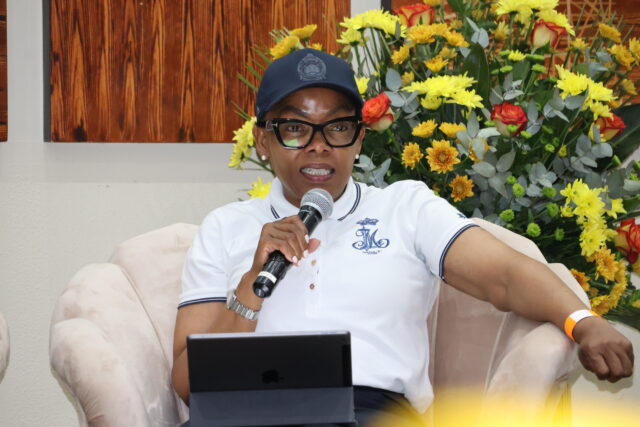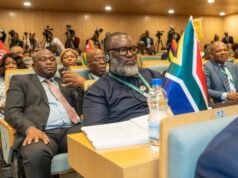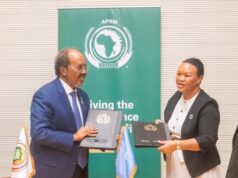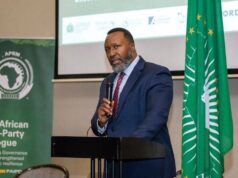The South African government remains committed to the Batho Pele Principles of putting people first in shaping their own future, says Public Service and Administration Deputy Minister, Ms Pinky Kekana.
According to Deputy Minister Kekana, this will be achieved through ensuring that public officials serve the will of the people and by continuously building strong, capable, and ethical public institutions, staffed by professional and dedicated public servants.
The Deputy Minister was speaking at the Global South Dialogue organised by the Global Times and co-hosted with the National School of Government and the Centre for Public Policy and African Studies at the University of Johannesburg on Thursday in Johannesburg.
The theme of the Global South Dialogue was China-Africa Roundtable Forum: Role of Media and Public Institutions in Democratic Governance which Deputy Minister Kekana said is a defining feature of the foreign policies of South Africa and China.
She further described the theme as promoting mutual understanding and respect while helping to resolve conflicts that threaten common prosperity throughout the world.
“Therefore, by building capable state institutions and credible media, we can contribute to protecting democracies and state legitimacy.
“The state safeguards democracy by upholding the Constitution, protecting rights, and ensuring accountability through ethical institutions.
“The media reinforces democracy by informing citizens, promoting transparency, and holding leaders accountable. “Together, they build trust, encourage participation, and ensure governance reflects the will of the people,” she said.
Embrace the values of credibility
Deputy Minister Kekana said government must continue to embrace the values of credibility, service, and commitment to the people. Through dialogue and the convergence of media, governance, and citizen participation, she said it is possible to build a peaceful, democratic, and prosperous Global South for current and future generations.
“All the host institutions play an important role in shaping discourse and promoting good governance through transparency, capable public institutions and the generation of ideas that enhance our understanding and management of public affairs.
“The Dialogue reflects our commitment to embracing different civilisations and their knowledge in building shared national and global prosperity.
“The purpose of this Global South Dialogue is to deepen cooperation and understanding between our two nations, with our media and public institutions at the forefront,” she said.
The role of the media
According to Deputy Minister Kekana, the media plays a vital role in enhancing accountability and democratic governance, while public learning institutions are equally central in creating public value through the training of bureaucrats who deliver services effectively.
“Through meaningful media engagements, citizens gain access to information and become empowered to make decisions and seize the opportunities presented by democracy. With capable public institutions, we can grow the economy, create jobs, and reduce poverty and inequality. An informed citizenry understands and can demand its rights. A capable bureaucracy is more responsive to the needs of citizens.
“An agile bureaucracy is just as important for national development as a vigilant and developmental media. Shared opportunities and shared prosperity are therefore central to nation-building.
“We firmly believe that the public service has an essential role in redressing historical injustices and building a nation through the delivery of quality services.
“The convergence of developmental media and capable administration is vital. Together, they contribute to social cohesion through active citizen participation and empowerment,” she said.
Deputy Minister Kekana said such engagements are also key in countering misinformation and disinformation, and in ensuring that citizens receive credible information about the work of government. Credible media engagements and effective public institutions reinforce one another in sustaining accountability, democratic governance, and the legitimacy of the state.
China’s whole-process people’s democracy
Through exchanges like these, South Africa can learn from China’s model of whole-process people’s democracy, a system that enhances participatory governance and ensures that people shape their own development discourse.
Whole-process people’s democracy offers valuable lessons on deepening mutual trust between the people and their leaders through grassroots engagements.
“It is a model that reinforces legitimacy, builds a social contract, promotes social justice, and ensures peaceful coexistence through shared prosperity.
“South Africa also strives for such a model…our National Development Plan (NDP) commits us to building an active citizenry, meaning citizens who work in partnership with various sectors of society to build a united South Africa with shared prosperity for all,” she said.









